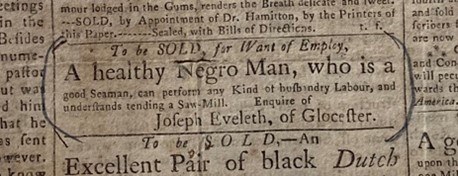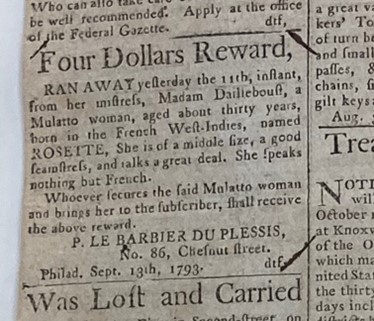-
“In 1780, when the Massachusetts Constitution went into effect, slavery was legal in the Commonwealth. However, during the years 1781 to 1783, in three related cases known today as “the Quock Walker case,” the Supreme Judicial Court applied the principle of judicial review to abolish slavery.” Available
at
https://www.mass.gov/guides/massachusetts-constitution-and-the-abolition-of-slavery#:~:text=In%201780%2C%20when%20the%20Massachusetts,judicial%20review%20to%20abolish%20slavery.
-
“Elizabeth Freeman, her case for freedom, and the Massachusetts Constitution,” 1781. Taylor A. Available at https://constitutioncenter.org/blog/elizabeth-freeman-her-case-for-freedom-and-the-massachusetts-constitution.
-
Edward Augustus Holyoke, MD, founder of MMS, refers to his father’s enslaved people in his diary, which is available online at https://catalog.hathitrust.org/Record/001873776.
Use the search term, “Negro.” His father, Reverend Edward Holyoke, was president of Harvard College. Dr. Holyoke’s memoir is available in full text online at https://www.google.com/books/edition/The_Holyoke_Diaries_1709_1856/vMwUAAAAYAAJ?hl=en&gbpv=1&dq=Reverend+Edward+Holyoke&printsec=frontcover.
Slavery and race are not mentioned.
-
“People Not Property: Stories of Slavery in the Colonial North.” Available at
https://peoplenotproperty.hudsonvalley.org/.
The account book of Joseph Warren, MD, a Boston physician (and Bunker Hill hero) who treated many enslaved patients, contains detailed accounts of each visit, the name of the patient or parent/enslaver, and occasionally the reason for treatment.
This mention is in the collection of the Massachusetts Historical Society.
-
Documents Illustrative of the Early History of the Massachusetts Medical Society, three volumes, Boston, 1852.
These three scrapbooks compiled by Henry Ingersoll Bowditch, MD, (see figure) came to be called the Bowditch Books. They are currently in the MMS collection at the Center for the History of Medicine at the Countway Library. Volume 1, Miscellaneous
Papers, contains pages from newspapers with notices regarding enslaved people highlighted by Dr. Bowditch, without comment (e.g., this portion of a newspaper published at Salem, c1773).

And this portion from The Federal Gazette, Philadelphia Advertiser, Monday, October 7, 1793.

